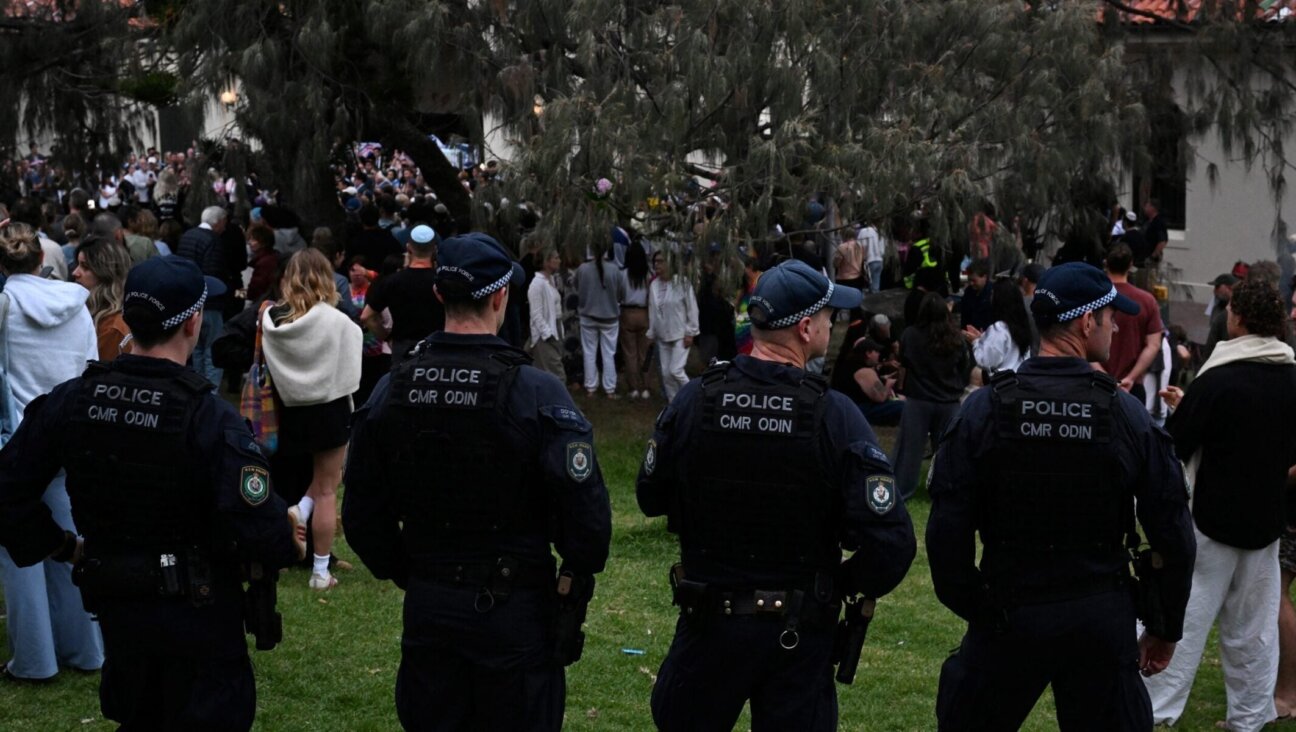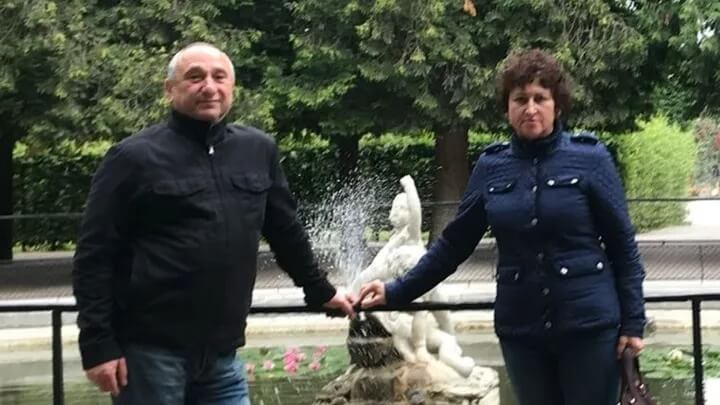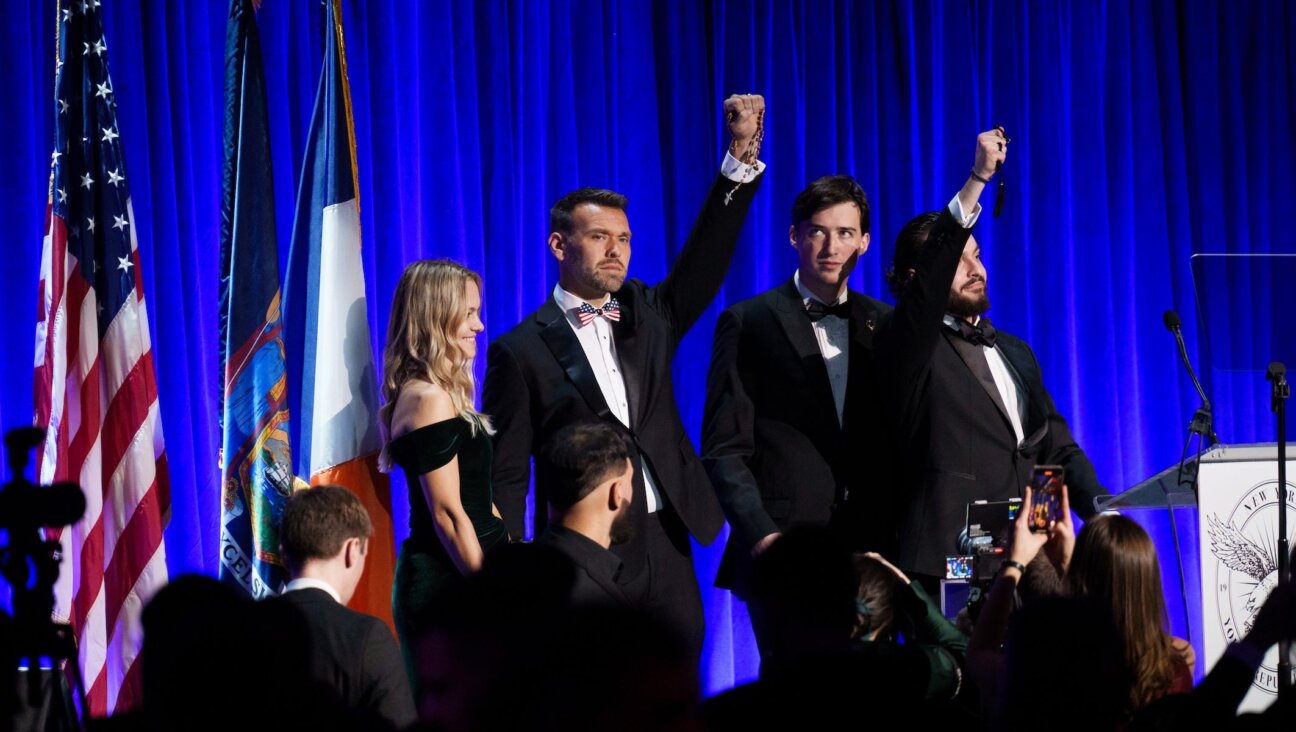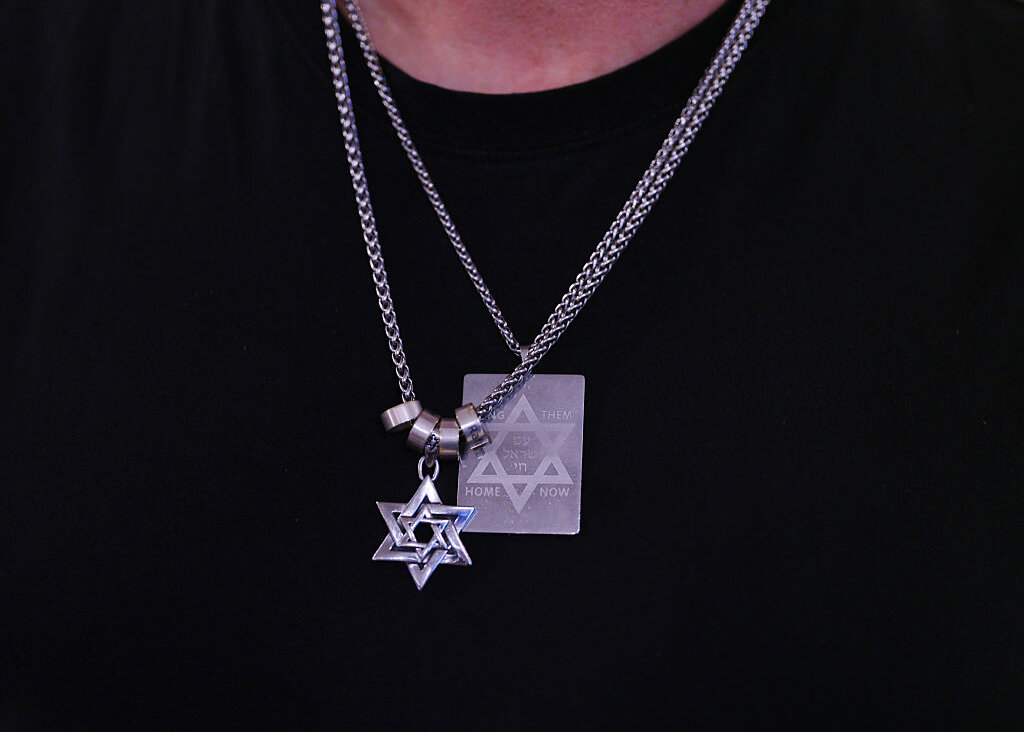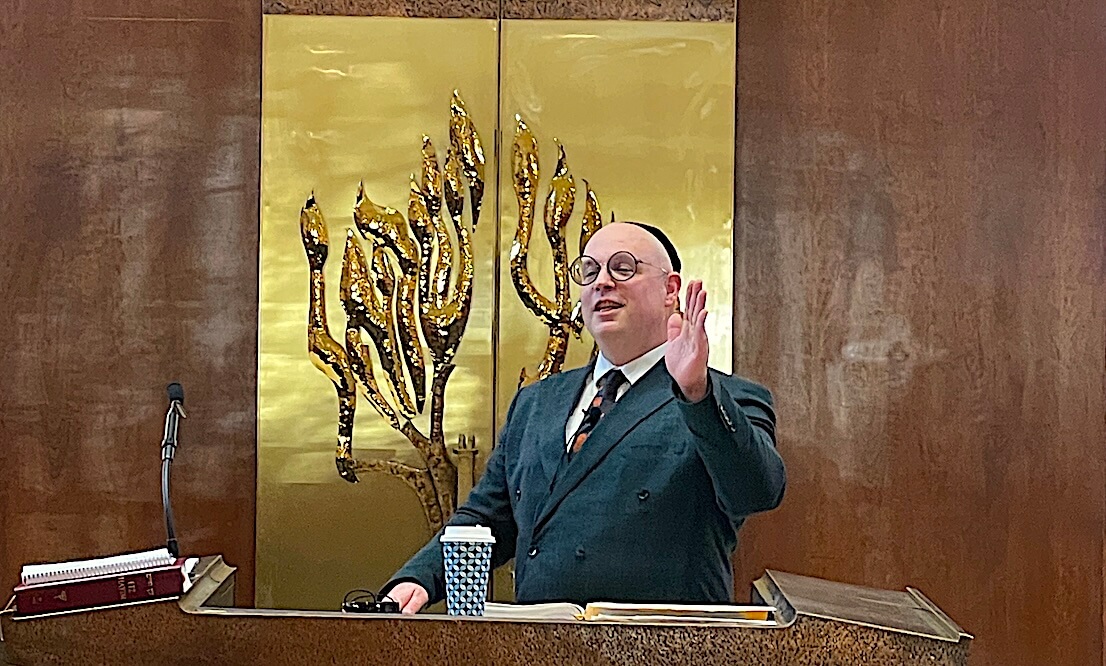114 People Just Converted To Judaism In Nicaragua

Graphic by Angelie Zaslavsky
(JTA) — Over the course of just a few days, the tiny Jewish community in Nicaragua more than doubled when 114 people converted to Judaism.
Last month, community members answered questions before a beit din, or religious court, of three Orthodox rabbis from Israel and the United States and immersed in a newly built mikvah in Managua, the Central American country’s capital. Male converts underwent circumcisions or symbolic circumcisions if already circumcised.
On July 23, following the conversions conducted at the Managua home of a community leader, 22 couples wed according to Jewish tradition in a Managua social hall rented for the occasion. Kulanu, a New York-based nonprofit group that supports communities around the world seeking to learn about Judaism, had facilitated the conversions.
“There was a great amount of trepidation in their faces and anxiousness because it was so important to them, and when they emerged from the mikvah the glow on their faces was amazing,” said beit din member Rabbi Mark Kunis, who was ordained at Yeshiva University’s Rabbi Isaac Elchanan Theological Seminary and works at the Shaarei Shamayim synagogue in Atlanta. “It’s inspiring; the excitement that it engendered was phenomenal.”
At least half the candidates claimed Jewish ancestry, and most had been studying Judaism for at least five years — with some pursuing Judaism almost their entire lives, Kunis told JTA. All the candidates except one family were accepted for conversion, and one of the beit din rabbis served as a Spanish translator, since most of the candidates could not communicate in English, he said.
“I feel at home,” Even Centeno, 21, told JTA of having officially become Jewish. “This was for me like a dream.”
Centeno is among the converts who trace their ancestry to Sephardic Jews forced to convert to Christianity during the Inquisition.
Centeno, who converted along with his parents and sister, said he was aware of his family’s Jewish ancestry since he was a young child and started learning about Judaism at the age of 11.
The conversions bring a significant influx of Jews to Nicaragua. Jews have been living there since the 18th century, but the community numbered only about 50 in 2012 and was comprised mostly of American retirees, according to the Nicaraguan Israelite Congregation. That year, Kulanu helped facilitate the conversions of 14 people, most of whom claimed ancestry to Jewish men who had married non-Jewish Nicaraguan women. Another 14 converted in 2015, but the recent group is the largest to date.
Though the Nicaraguans converted together, they follow two different leaders, said Bonita Sussman, vice president of Kulanu.
The majority, including Centeno, are inspired by Hasidism and follow a local leader named Akiva Simja Fernandez, who converted to Judaism in 2012 with the help of Kulanu. Fernandez follows some Jewish customs that he learned from the Chabad-Lubavitch movement, which does not have a presence in Managua but caters to Israeli tourists in the beach town of San Juan del Sur.
Fernandez and many of his followers — some of whom claim Jewish ancestry — wear black velvet kippahs and wide-brimmed black hats, and sing and dance to Hasidic music during celebrations.
A second group with 38 members of one extended family heeds Moshe Omar Cohen-Henriquez, who traces his ancestry to Jews from Curacao who were forced to convert to Christianity. The group adheres to Sephardi customs and has access to a mikvah, or ritual pool, adjacent to Henriquez’s home. The men wear big crocheted kippahs.
Prior to deciding to become Jewish, Sussman said, the converts identified with Christianity or messianism, a movement that infuses Christian belief with some elements of Jewish ritual practice.
This isn’t the first mass conversion facilitated by Kulanu. Last year, the group brought rabbis to Madagascar to convert 121 people, building a Jewish community where none had existed.
Sussman noted how the members of the Nicaraguan community relate to their Judaism.
“These two are unique in that one is a Sephardic and descendants of anousim and the other tends towards Hasidic kabbalistic practice,” she said.
“Anousim” is a Hebrew term for Jews who were forced to abandon Judaism against their will.
Though the Madagascar community also follows Hasidic traditions, the Nicaragua group that follows Simja is distinctive in the fact that it follows customs learned from Chabad, Sussman added. (Chabad has no official ties to the converts or Kulanu.)
Sussman sees the conversions as part of a larger phenomenon.
“This is a new trend in Jewish history,” she said. “In the last 100 years we have seen the Holocaust, the destruction of all Jewish communities in Arab lands and the rebuilding of a Jewish homeland. We are now entering an era of rebuilding the Jewish people.
“In general, while there may be some hot spots of interest in Judaism in the Western countries, for the most part serious interest in religion is a thing of the past. Today, however, the interest lies in Africa, South America and India. As Jews we must be part of this exciting new development.”
Kulanu is planning to send equipment to the Nicaraguans to perform kosher ritual slaughter.
“The big need is for kosher meat. We’re planning to get them shechitah knives,” Sussman said. “They haven’t eaten meat, some of them for years. They eat vegetarian and fish.”
The dietary restrictions didn’t seem to be a problem for Centeno, who was getting ready to cook for Shabbat, when he would be hosting 70 community members.
“[A]ll the community will be in my house, we’ll do a Shabbaton,” he said. “Today I’m preparing all the food.”

